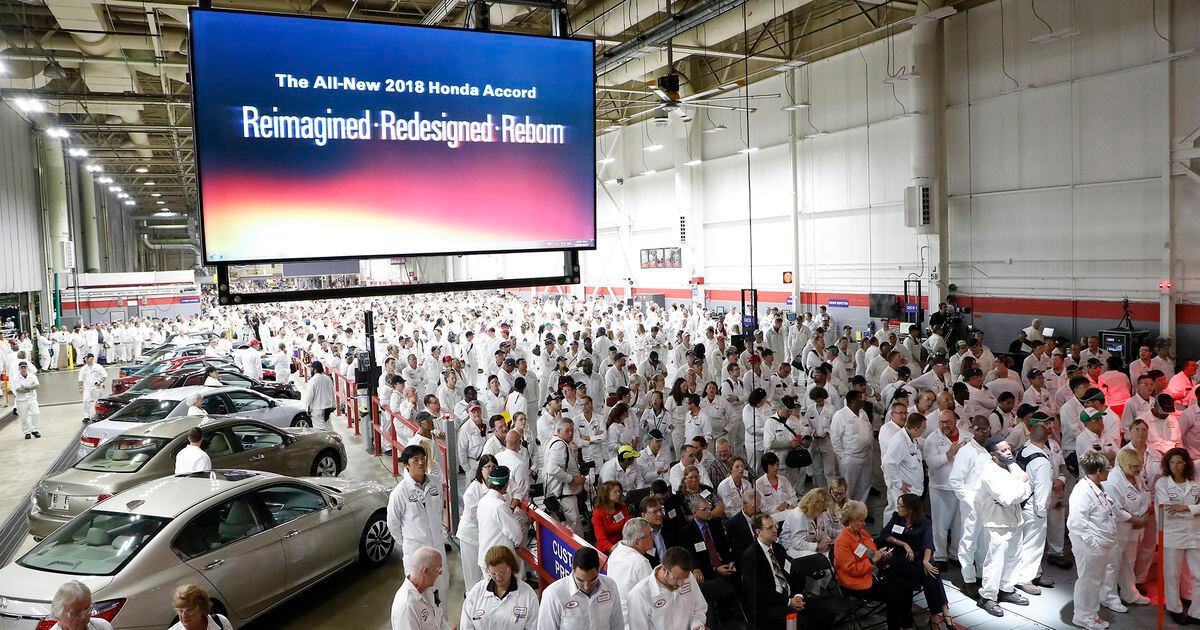
“Due to a shortage of semiconductor microchips, Honda’s purchasing and production teams are currently evaluating this issue in the effort to limit the impact of this situation on our production in North America and maintain our ability to meet the needs of our customers,” Honda spokesman in Ohio Chris Abbruzzese said in an email to the Dayton Daily News and Springfield News-Sun Friday.
Automakers are scrambling, but eventually, the semiconductor pipeline will be filled, predicted Michelle Krebs, senior director of automotive relations for Cox Automotive and executive analyst for Autotrader. (Cox Automotive Inc. is part of Cox Enterprises, which owns this newspaper.)
Part of the reason for the shortage, which really began last year, was the stronger-than-expected rebound in demand for automobiles, Krebs said.
Honda for December reported monthly sales of 136,467, only 99 vehicles down from December 2019. It ended 2020 with sales of 1.34 million cars and light trucks, down 16% from 2019.
Another reason for the semiconductor pinch: Sales of computers have grown during the pandemic, creating demand in other market sectors.
“The consumer demand for these computer chips has really surged,” Krebs said.
It’s a classic supply-and-demand dilemma, said David Kudla, a Dayton native, University of Dayton graduate and chief executive of Grand Blanc, Mich.-based Mainstay Capital Management LLC
“Last year, when automotive plants were shut down as a result of the pandemic, many semiconductor makers diverted production to computers and consumer electronics, as the stay-at –home economy created surging demand,” Kudla said.
“In the past months, automotive sales have recovered faster than expected, creating renewed demand,” he added.
It is now a matter of refilling the pipeline, which is a matter of time, Kudla added.
Production in Marysville has been slowed before. In April 2019, Honda acknowledged plans to shut down a second-shift production line at its Marysville plant starting that summer for a few years — a move that Honda said would not result in worker layoffs.
At the time, a Honda spokeswoman cited the shift of market demand from sedans to SUVs and light trucks.
2020 was a challenging year for Honda and other automakers.
Nearly all North American auto plants ceased production in March, as the pandemic and attendant fears tightened their grip. In April, for the first time in Honda’s history in Ohio, the company was forced to lay off workers.
In mid-May Honda began to gradually resume auto, engine and transmission production in its U.S. and Canadian plants, ending a suspension of production that had started March 23.
And over the summer, the automaker also acknowledged that worker absenteeism and other challenges forced front-office and administrative workers to temporarily handle assembly line and production work.
January 11, 2021 at 06:12PM
https://ift.tt/3i3oVjJ
Honda semiconductor shortage affects Accord production - Springfield News Sun
https://ift.tt/2ZpDLcG
Bagikan Berita Ini

















0 Response to "Honda semiconductor shortage affects Accord production - Springfield News Sun"
Post a Comment